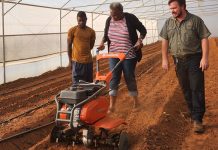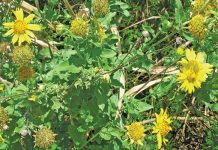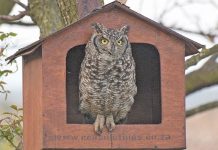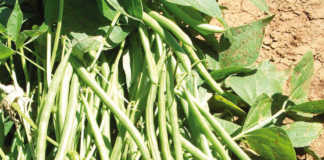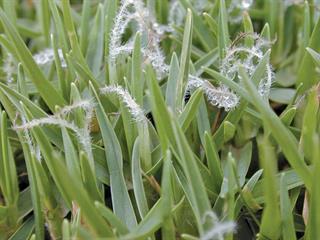
In the Southern Cape, kikuyu is a popular pasturage crop with high dry-matter (DM) production. This allows for a high stocking load. Due to its adaptability and vigour, kikuyu can tolerate boosting in winter – the practice of over-sowing the kikuyu with annual pasturage crops that can be grazed when the kikuyu is not in production.
Two crucial factors
To determine whether a camp should be over-sown:
- Get to know the DM production potential of your kikuyu. If conditions are favourable, the production can be higher than 16t of DM/ha. A decline in DM production must be followed up immediately by soil analysis. If this indicates any deficiencies, over-sow the camp and supplement the ingredients that are lacking;
- Understand the difference between matting and normal plant decay and act accordingly. Matting is the part of the living plant that is not utilised by the animal. It consists of thick, unpalatable under- and above-ground runners, and can largely be controlled by crop rotation. Kikuyu pasturage becomes matted as a result of faulty management and/or age. It should not be confused with the layer of decayed plant material consisting of dead leaves and stems on the surface of the soil and in the upper layers. This material is important for humification and helps to prevent the evaporation of soil moisture.
- High-pressure grazing is possible in the early stages of matting. However, if the matting consists of thick underground runners, complete cultivation of the soil and renewal of the stand is the only alternative.
Competition and timing
The kikuyu and the over-sown crop can end up competing with each other. You should therefore consider this when deciding when to over-sow. With early over-sowing, the winter pasturage is ready to be grazed by mid-April. The disadvantage, however, is that the kikuyu is still growing vigorously at this stage and will compete with the winter grazing.
Late planting avoids competition between the two crops, but the advantage of early winter grazing is lost, while the pasturage crops take longer to become established due to the lower temperatures. Your decision on when to plant will also be influenced by when the pasture will be required.
Cultivars
Use Italian rye grasses or short-season Westerwold-type rye grasses for over-sowing. These grasses can be established on their own or with legumes such as Persian clover or perennial white or red clovers.

